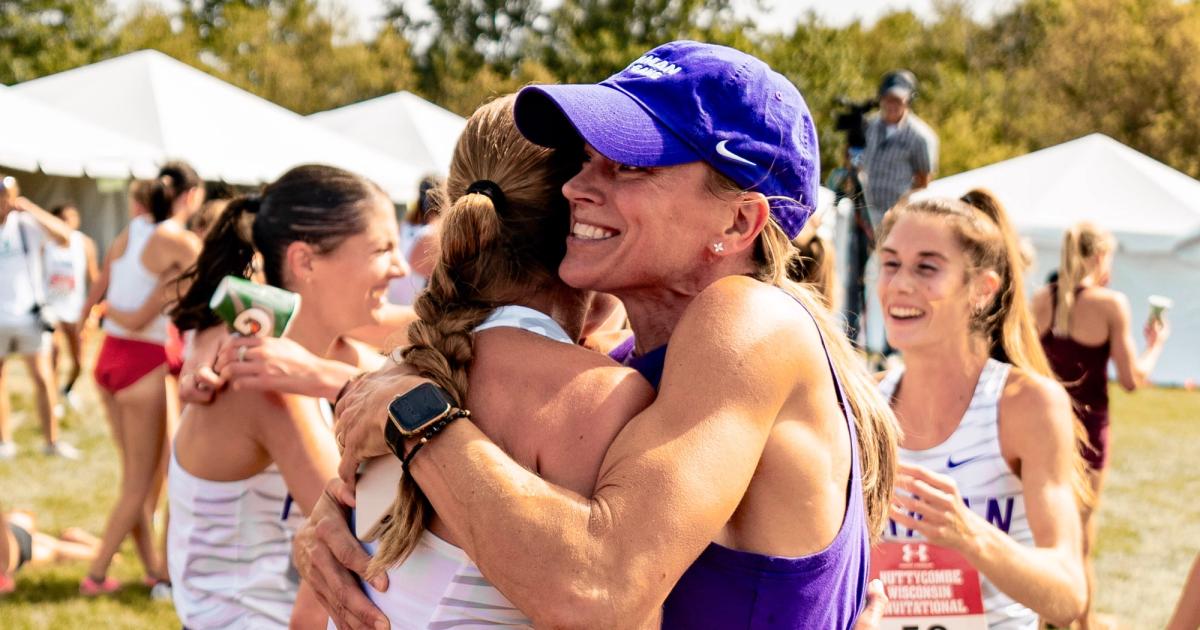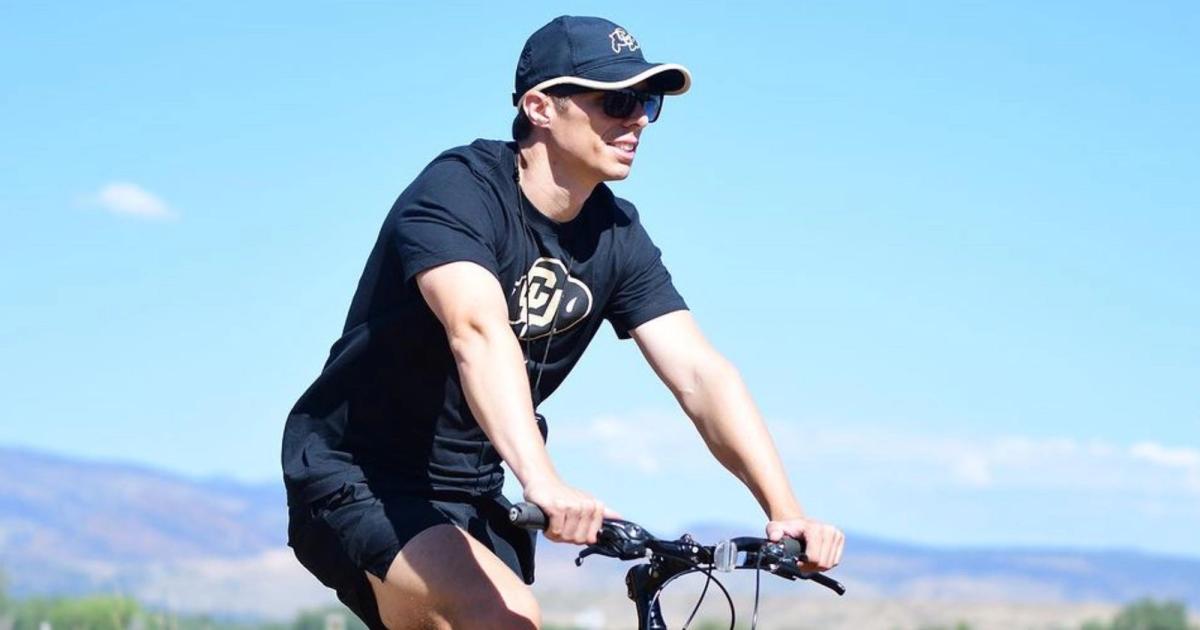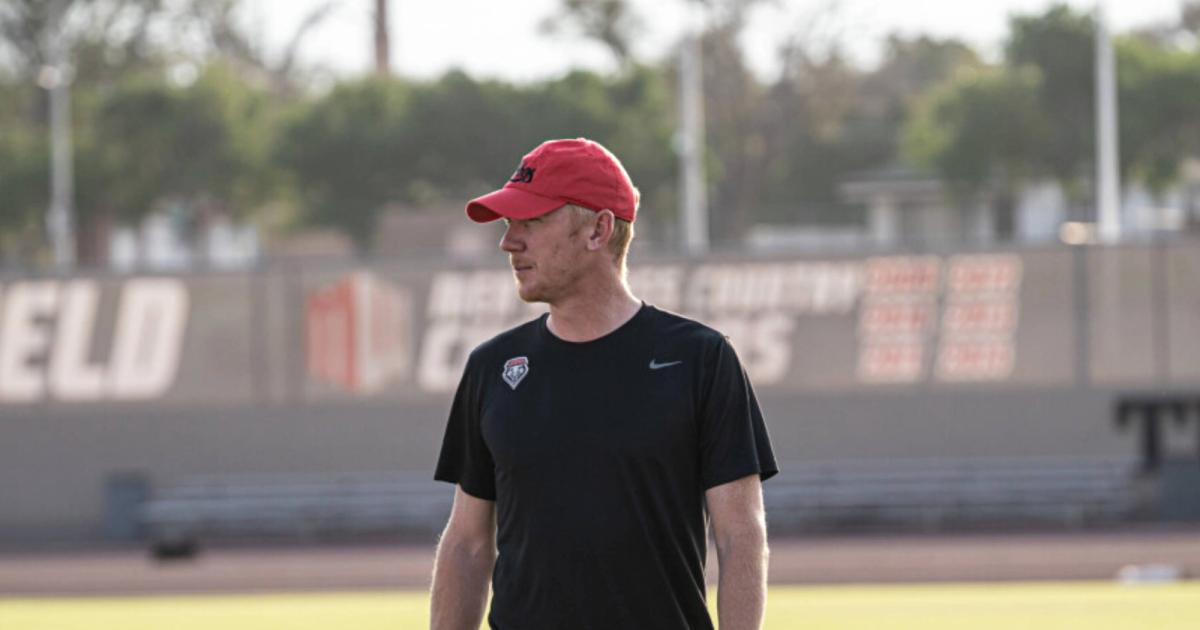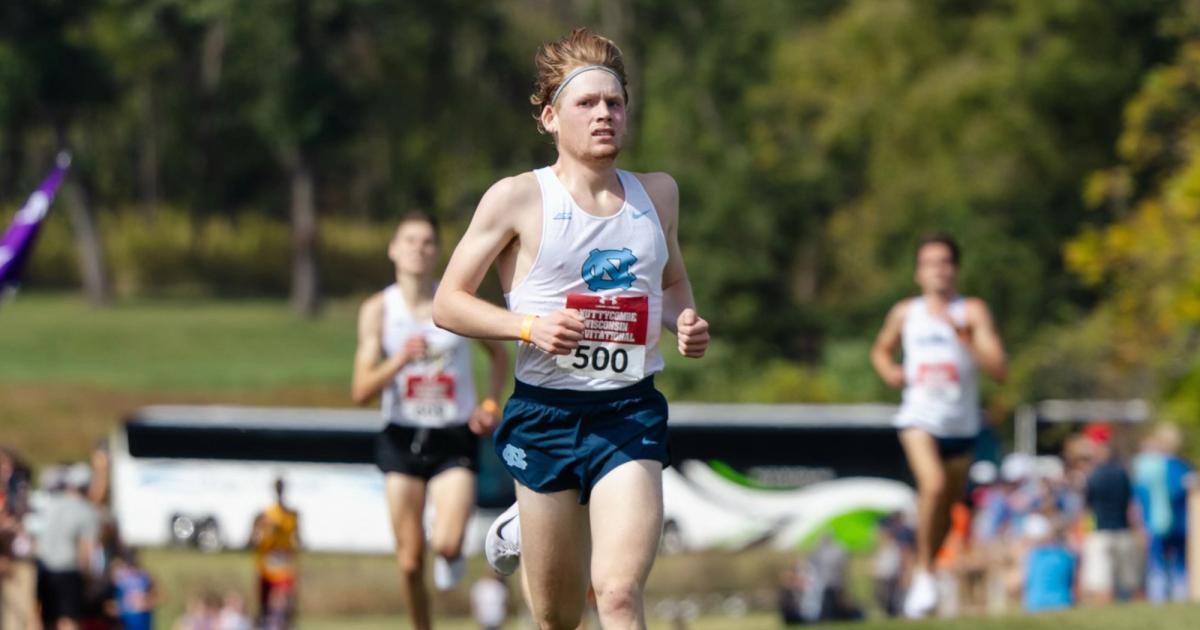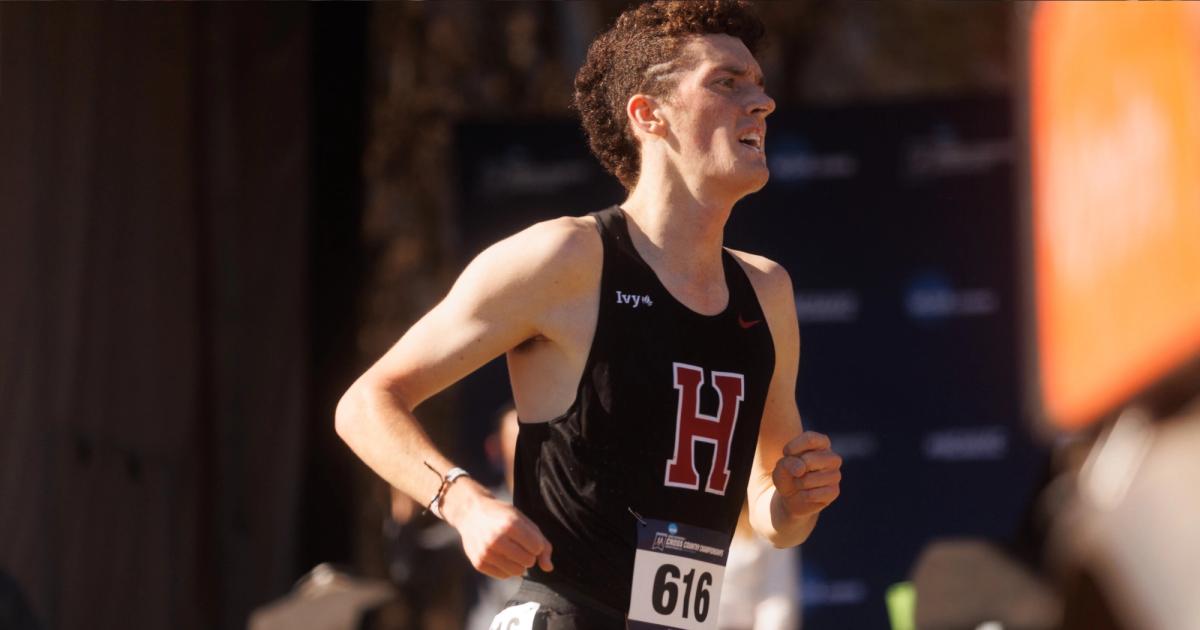By Jasmine Fehr
October 1, 2024
"One of the challenges I have for my women: when you do a good job, put your hand up and take credit for it. Like… ‘I did that thing. I'm a baddie. I rocked it.’"
Rita Gary, Head Coach of Women’s Cross Country and Track at Furman, joins Jasmine Fehr for this week’s coach spotlight. Rita Gary is in her 12th year at Furman and has coached over 50 All-Americans, 15 top-ten individual finishers at NCAAs, and five Team USA members.
She shares about how she creates a supportive team environment where her women uplift one another, the importance of self-advocacy for women, and how she upholds her core values amidst the changing landscape of college athletics. She also shares insights on balancing her roles as a mother and a coach. Rita's love for the women of Furman shines brightly in our conversation.
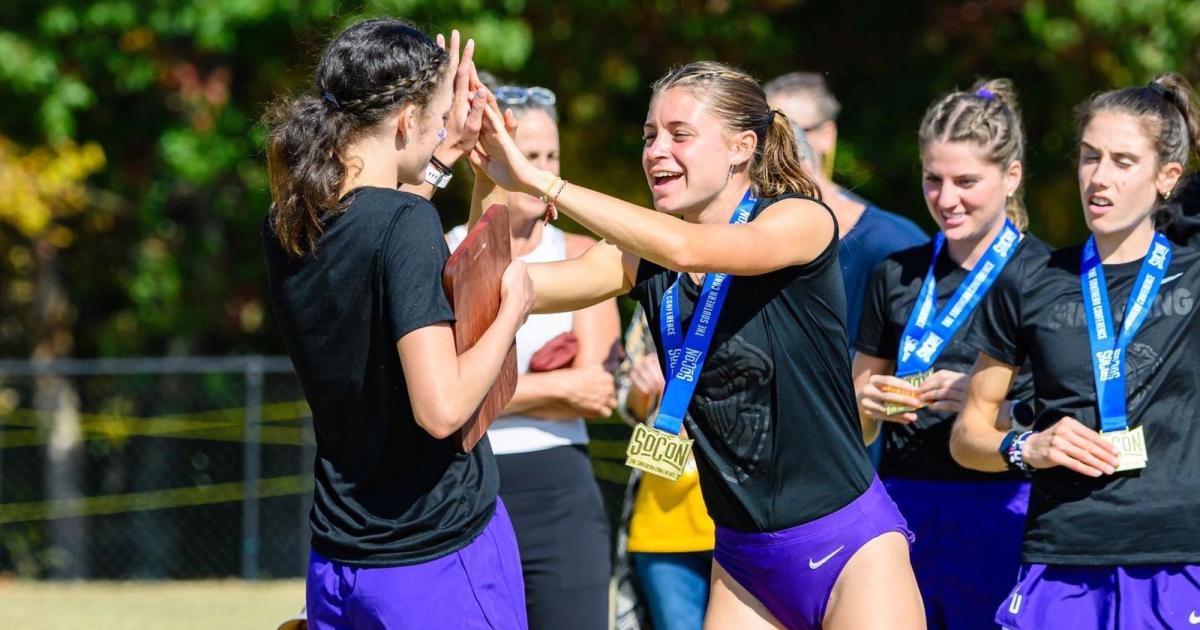
@RGary2 on X
The following interview excerpt with Rita Gary has been edited lightly for length and clarity.
Jasmine Fehr: Coach Rita Gary, welcome to CITIUS MAG and congrats on being promoted to Head Coach of Women's Cross Country and Track! To kick things off, can you share with us what coaching at Furman means to you and what it's like paving the way for female coaches in the NCAA?
Rita Gary: I'm so grateful to work at Furman. When my husband and I came down here 12 years ago, we saw opportunity and potential and a place where we could have a meaningful impact on our sport. While our journey may not have looked exactly like what somebody else would choose, it spoke to us and we loved it.
Even though I just got the title, I have never been unappreciated at Furman; my work has always been valued. When Robert (Gary) and I came down here, it was my first time working as a coach-mom. I had taken three years off of work to stay at home with my son and I didn't know what the balance of being a mom and coach looked like. I wanted to set myself up for success by clearly defining my roles… and I knew my top priority was going to be my son, especially when he was that young. I didn't want to shortchange the women on the Furman team, so Robert and I set it up so that he was the Head Coach at Furman. He is a fantastic boss and has been an incredible supporter of me the entire time.
To your point about paving the way for other female coaches… I've come to realize how challenging it is to be a female leader. It looks different for us than it does for our male counterparts. And I don't say that as an excuse, or to sound like a victim – I say it as a reality. One of the challenges I have for my women: when you do a good job, put your hand up and take credit for it. Like… ‘I did that thing. I'm a baddie. I rocked it.’
It was a little disingenuous for me to be giving that advice and not doing it myself. It came full circle for me last fall when we took the title of the longest active winning streak in the NCAA – an accomplishment built by women, for women. And yet, I had my husband's name attached (who believe me, has carried my butt more times than not). But the truth of the matter is that we women at Furman did that. That's when I started discussing with my SWA and my athletic director how this is important to me and I have energy to give to this space. I have ownership of this success. I can't be asking my women to advocate for themselves if I'm not doing the same on my end.
If you are young, old, middle-aged, whatever-you-are female, doing the work of a Head Coach, you should be recognized for that great work. Have my responsibilities changed at all? No. Has my appreciation for Furman changed at all? No. But now when you see the ranking, the awards, or the accolades… it's going to have a female Head Coach attached to it.
"I have ownership of this success. I can't be asking my women to advocate for themselves if I'm not doing the same on my end."
I love what you said about the importance of stepping up and taking credit where credit is due as women.
It's a double-edged sword. I have humility; I didn’t get here alone. If I didn't have Coach Lange working with me every single day to cultivate this culture in these women, I probably would lose my ever-loving mind… he is such an essential part of it.
But standing up, raising your hand, and saying ‘I did a good job’ – that's an important quality for women to have. It doesn't make you an egomaniac or a narcissist… It just makes you recognized for the talent, time and energy you are giving to a product.
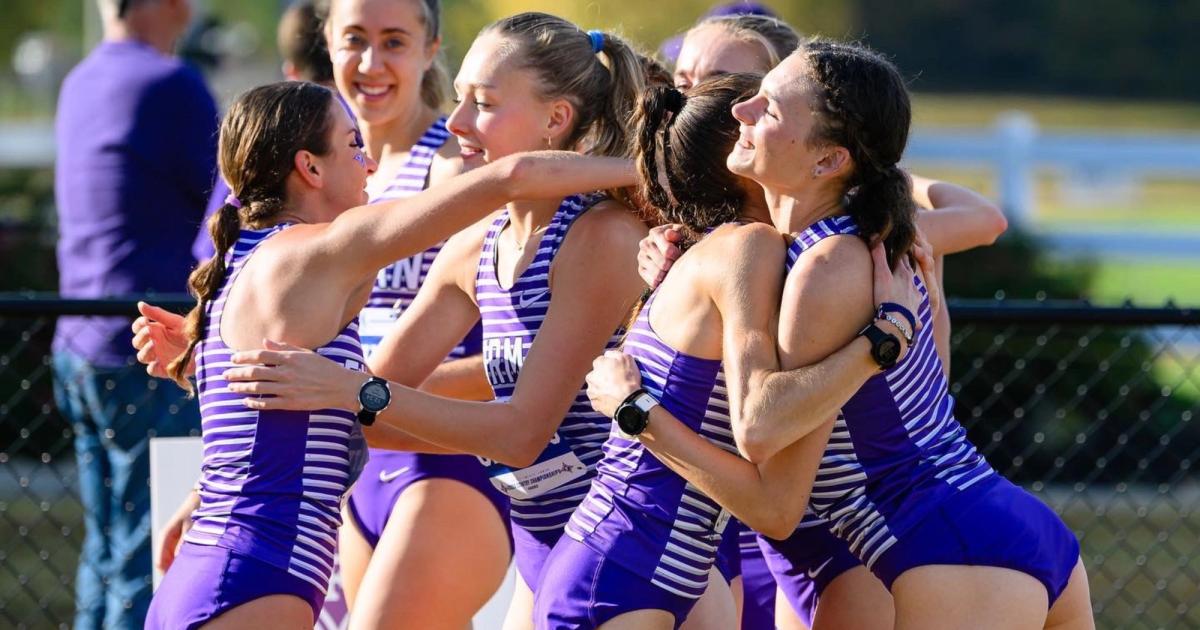
@RGary2 on X
Building off that, how do you create a strong team culture and what do you value most as a coach?
Culture is about leadership and coaching is about leadership. It's my job as a coach to set the vision and values for our program and it's my women's job to bring it to life. What's cool about culture is it's easily created when you know who you are and what you stand for.
At Furman, we are a program that values giving opportunities to traditional-aged college students 18 to 23 years old. We believe in cultivating a distance-only program and coaching that within the framework of an academically elite institution… and seeing how good people can be. The most important thing about culture: does your leader know who they are and what their values are? I try to teach my women to take responsibility for their own growth. Growth is only possible when you have an awareness for a skill that you're missing – an action that pairs with that is awareness. And the most important part is some accountability to see that through.
I help them recognize awareness, challenge them with action, and then create some accountability – in the most loving way possible. I talk honestly about investing in the women around us. The truth of the matter is the phrase: ‘If you want to go fast, go alone. If you want to go far, go with others.’ I really believe in that. The x-factor of any great locker room is how much we love each other… and you have to teach that to women.
You have to teach them how to cheer for each other. It doesn't always come naturally. Sometimes it feels threatening when someone else is having success and you're not, or someone else is challenging you and you're not totally up for it. But it’s an important part of the culture: both to own your personal growth and learn to love the women around you.
That's what I try to provide as a framework at Furman. And in 25 years of coaching, I haven't gotten it right every single time. If you know who you are and you know your values, you can reflect honestly on the times that went well. When things went well, it's usually because all your values were at play. If you were to humbly reflect back on what went wrong in the times you came up short, it's usually because your values weren't all there. One was missing, or you just pushed it to the side.
I'm so grateful to know who I am as a leader because I know my values and what I stand for – it provides a bit of a roadmap. When opportunities come my way, I can bounce it off my values and ask myself, ‘Is that something that hits all three?’ If the answer is yes, it’s worth my energy. And if I can’t apply my values, it’s so easy for me to walk away… Somebody else can do that, and I'm off to the next thing.
"It's my job as a coach to set the vision and values for our program and it's my women's job to bring it to life. What's cool about culture is it's easily created when you know who you are and what you stand for."
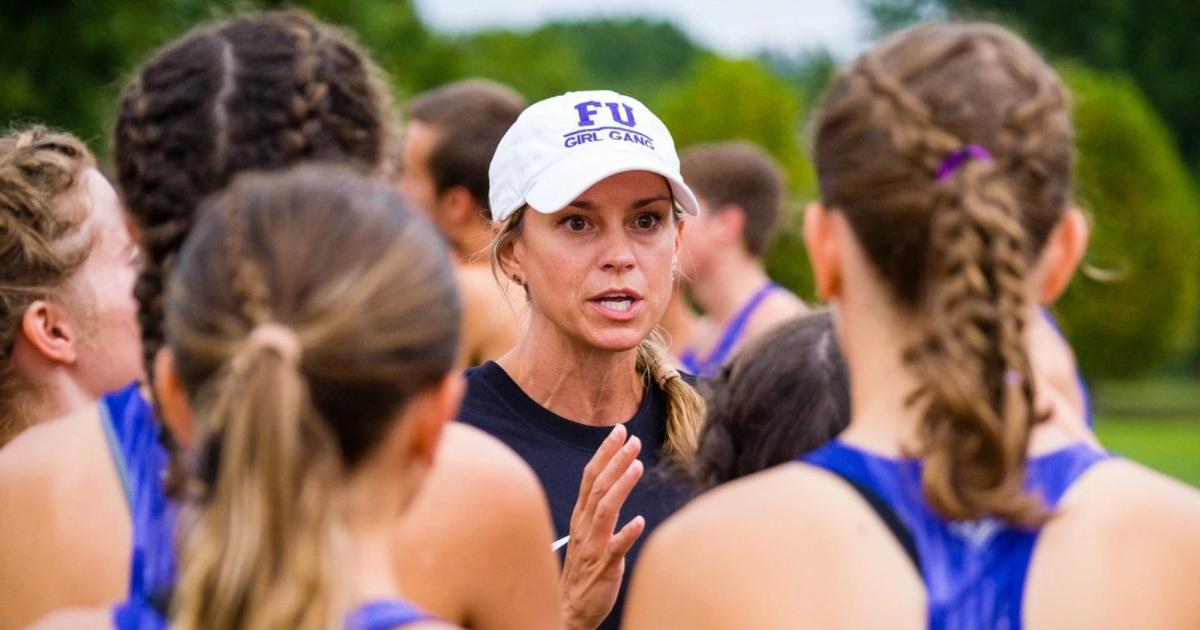
Courtesy of Furman Athletics
That’s incredible! If you know what you stand for, you can easily step away from whatever doesn't align with your values.
Something you mentioned at the beginning of that answer was the importance to you in recruiting traditional 18 to 23-year-olds. I'm curious what your thoughts are on all the changes happening within the NCAA. We're seeing a lot of older athletes join the college system as well as adjustments to NIL, scholarships and roster limits. What is your perspective on this and how have you navigated all of these changes?
It’s a loaded question and I have a lot of opinions about it… I'll go back to what I said earlier: first, I'm so grateful to work at Furman and second, I'm so grateful to know what my values are. Those two things make it a non-issue for me.
You navigate change, whether it's in the NCAA or at some stage of your life, by knowing who you are. At Furman we are an elite academic institution that values athletics as a way to build out the educational experience for our student-athletes, and traditionally, we serve the 18 to 23-year-old group.
Furman is a destination for elite distance runners who value development and that makes the how and the why really simple. We are incredibly lucky to be at a school where 15 years ago, we had an alumni who was successful at Furman but then took that success and built it into professional success in the business world. Chris Borch came back and has been a foundational piece of our program. He invested in our endowment at a time where other schools were chasing NIL deals or big, fancy locker rooms… There are those who only consider what more we can build for today. Chris was always thinking about what more we can build for tomorrow.
Today at Furman, Robert and I are coaching within the framework of a program that has a $20 million endowment for cross country and track and field. And what does that mean? It means our scholarship opportunities are never going to get cut, our operations opportunities are never going to get cut, and our student-athletes can expect the same amount of support that they see when they come on their visit.
I’m grateful to Chris Borch for having that vision. I'm grateful to my husband for cultivating him as a donor and not giving into the ‘right now’ type of executive functioning. Robert can be like… ‘Okay, I can not do the thing now and I know it'll pay off more later.’ It's probably why he's a two-time Olympian: you don't get there without being disciplined.
As it relates to what other programs are doing… I don't get to decide what they do, or what their values are, or what their ethics are. I got into coaching because I wanted to create an impact on 18 to 23-year-old people and I wanted to create an impact on U.S. distance running.
Looking back over the past few years, is there a moment with the team that stands out to you that you’d like to share?
When you choose to spend 12 years at a place, you invested in not just your current athletes, but also the community. The greatest byproduct is that there are so many good memories. I could talk about Allie Buchalski almost winning a national title, or about those top-ten finishes, or even watching Gabbi Jennings and Allie this past summer just miss the Olympics by one spot. But the things you don't see are what I love the most.
My son turned 15 last month and I posted a picture of him with his driver's permit. One of my old athlete’s moms commented on the picture. She said, ‘Rita, I remember when you were coaching Laura at practice during winter break and you had taken Percy out there at three years old. It was raining and he was jumping around in the puddles… You were trying to coach and you've got this three-year-old that's crying because his feet are cold. So I remember grabbing him and playing with him in my car with the heat on high while you coached my daughter.’
It might not seem like a big moment to many people, but what an amazing set of circumstances. My son at a very young age is watching his mother do a job as a mom. And while I love him so much, there are other responsibilities to what I do. And sometimes I have to show up, even if the circumstances aren't great. And for Laura, the girl on my team at the time, what a great opportunity for her to see a young mom/coach trying to figure it out and not doing it perfectly. I mean, jeez… I could have probably brought rain boots or dry socks, but instead, my poor little boy is freezing and crying.
And then what a great lesson for me to have the other mom show up. She could have left to grab coffee or run errands. I mean, when you're a mom, you're like, ‘Give me ten minutes by myself,’ right? But instead, she came and grabbed my kid and took care of him – that was really impactful for me. So it was funny when she posted that on my page, even though it’s cheesy, I was really moved.
Women supporting women… it's everywhere: it’s here in our sport, it's at practice. It's the mom who doesn't need to be around for the college coach’s kid.
"When you choose to spend 12 years at a place, you invested in not just your current athletes, but also the community. The greatest byproduct is that there are so many good memories."
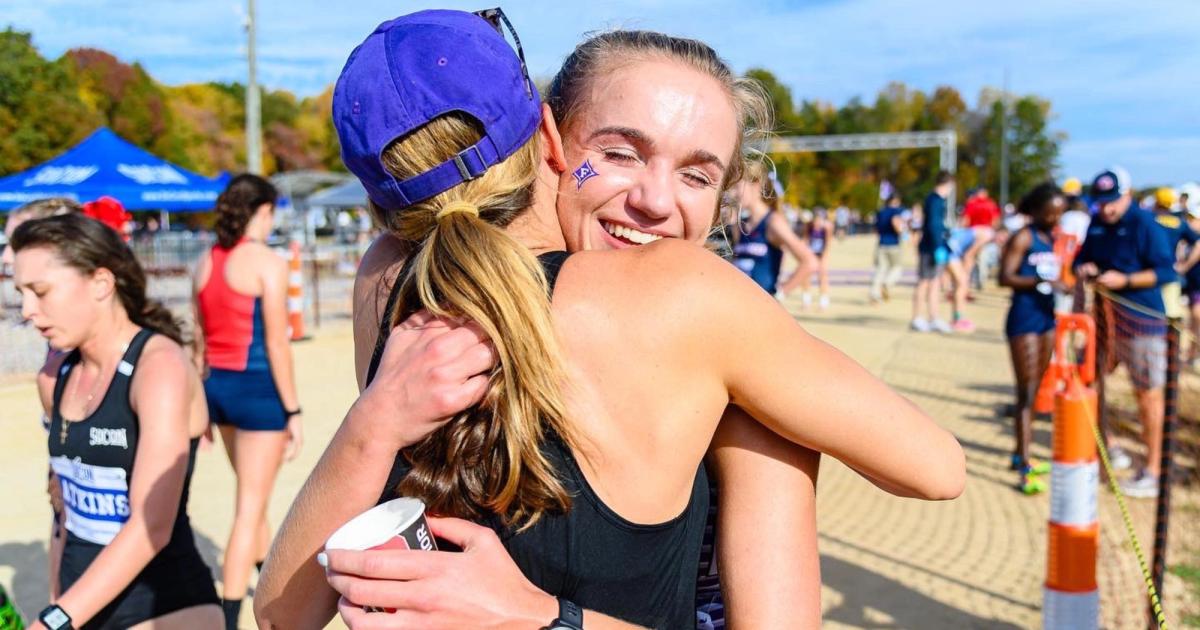
@RGary2 on X
I love how the smaller moments like this ended up becoming some of the most impactful moments when you reflect back on your career. Everyone sees the national finishes and accolades, but the simple moments are often just as memorable.
Nobody gets it right 100% of the time and of course I'm going to reflect back on the positives. That final award, that final accomplishment is super important and I'm always going to want it. But the goal is the same for me as a coach, a mother, and a friend to so many other women in this sport: let’s make supporting each other the process and our goal. We'll get to something special if we do that.
To close things out, what do you enjoy most about Furman and what are you looking forward to this season?
I'm really lucky to work at Furman and I enjoy so much of what I do professionally. I'm supported by my athletic director, my president, my alumni, and my parents. And when I'm supported, I support better. When I'm valued, I value better. When I'm challenged, I challenge better.
Robert is the love of my life and it just so happens that I think he is a really great coach as well. I get to do this with him and show our son the value of people versus things.
We’re not the biggest athletic department in the NCAA or the place that most people want to climb to in their careers. We really looked at ourselves 12 years ago and went back to our values and how we wanted to impact the sport. But to take it one step further, we asked ourselves what we wanted to teach our son. And we wanted to teach our son that people matter – that you win with people, you can develop people, and you can count on people. You can't say the same thing about a big fancy football stadium.
That's one of the things that sets Furman so far apart in so many ways. It's the people that support this program. And because of them, I know our best days are still ahead of us. And I know it could look rocky for a little bit, too. Sometimes you lose meets, you lose bonuses, you lose friends, you lose prestige. It's hard to do the right thing. But I know the right thing is here at Furman.
"We asked ourselves what we wanted to teach our son. And we wanted to teach our son that people matter – that you win with people, you can develop people, and you can count on people."
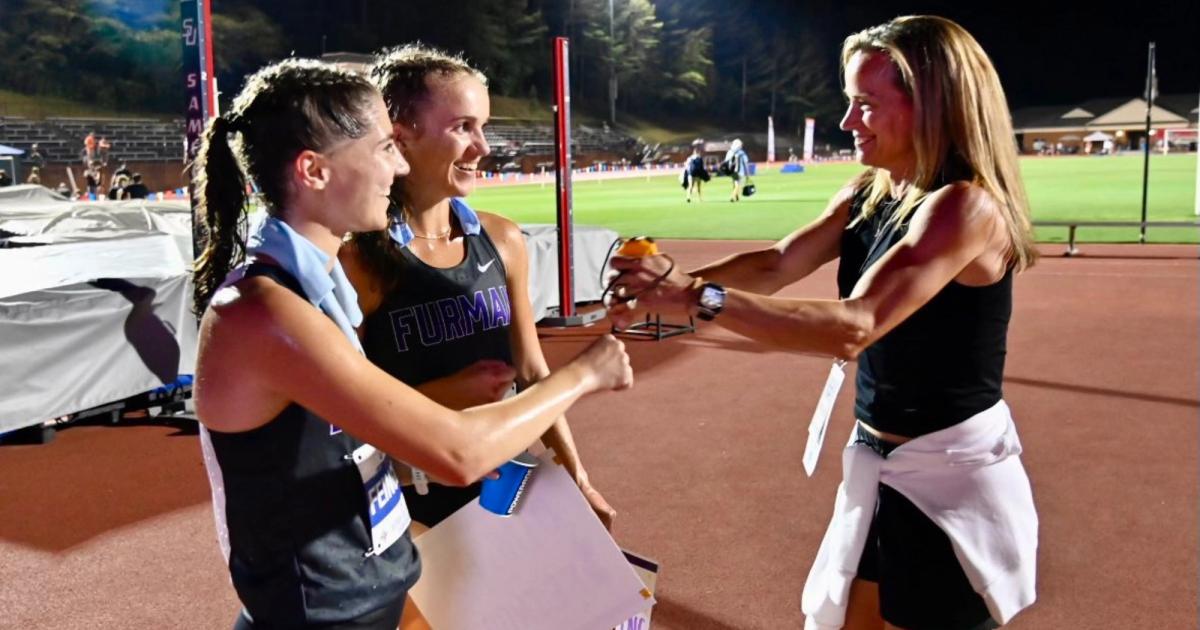
@RGary2 on X
Well said! Thank you so much for joining us and good luck to the team this season. Your impact on the sport reaches far beyond Furman!
Thanks for shining a light on our program!
___________________
Keep up with all things track and field by following us across Instagram, X, and YouTube. Catch the latest episodes of the CITIUS MAG Podcast on Spotify and Apple Podcasts. For more, subscribe to The Lap Count and CITIUS MAG Newsletter for the top running news delivered straight to your inbox.
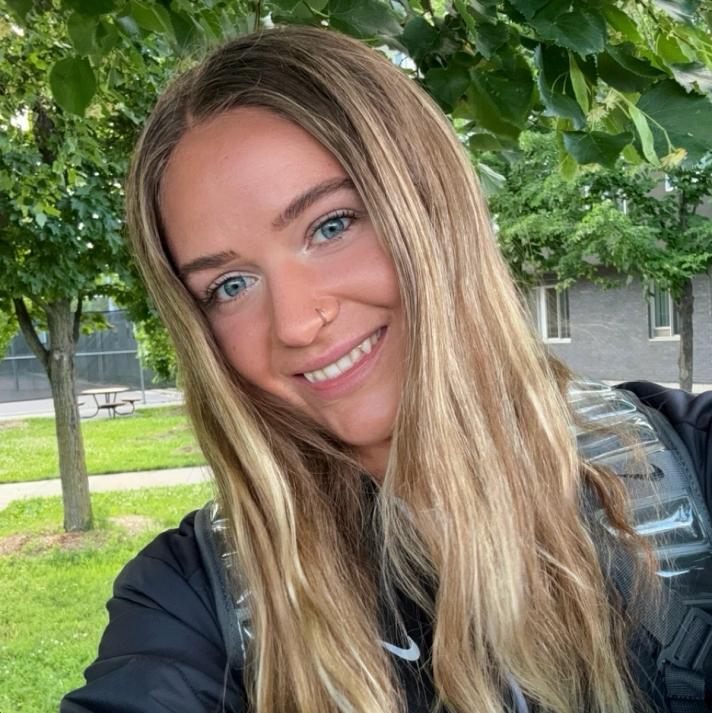
Jasmine Fehr
Jasmine Fehr produces the CITIUS MAG Podcast, manages our website, and shares content across our socials. She’s a marathon runner training in Flagstaff, Arizona. Her collegiate running career spanned the University of Portland and the University of Tennessee, where she earned a Bachelor’s degree in Psychology and Master’s degree in Communications.
